#but also it's these little things that defines S-POR as being SO much more
Text
it’s so important to me specifically that S-POR uses both themself/themselves
they’re a druid who is used to being an essential piece of their ecosystem, but has known their entire life that there’s something that defines them as different from the rest
the complete empathy that rose because the first druid they talked to in Barovia also said he was unused to saying “I” instead of “We” after centuries of being separated from his circle, yet having the innate knowledge that something makes you different from the rest of the group
#char: S POR#taking over an entire strahd dinner with just a one v one convo about being a druid can be SO personal...#admittedly part of why i use themself/selves for S-POR is due to me using that for myself#and in the beginning of the campaign they were essentially a feral me#but also it's these little things that defines S-POR as being SO much more#different than the rest of the party#and entity so wholly human yet at the same time something else entirely undefinable
1 note
·
View note
Text
The Archon’s Opinion: What Does it Mean for Good Characters to Have Bad Games; or, the Curious Case of Sonic the Hedgehog
Hey, guess who can’t count to five? This Archon! Whoo!
Anyway, I wanted to discuss something that’s been on my mind since Sonic Mania came out a while back, and even since the Game Grumps (hi guys) began their playthrough of Sonic Unleashed. That thing is simply: why is it that though Sonic the Hedgehog is a good character, the games about him are... not so good. On this episode of The Archon’s Opinion, we’re going to determine the why, what, and how, of the atrociousness of Sonic games. Or maybe I’ll just ramble on about how awesome Shadow Sonic is. Who knows?

Let’s start out by defining what it is that makes Sonic a “good character”. What I mean by “good character” is one who is largely appealing, and one who is either deep or punchy, one you have to think a lot about or one you can immediately recognize and empathize with. In this case, Sonic is the latter; he’s got an easily-recognizable silhouette, and a fun and easy-to-memorize suite of powers (goes fast, can go super-saiyan, can roll good, spikes sharp). Also, while the particulars of his personality depend on the writer, he’s generally consistent in his carefree-but-righteous nature. Most people like to think of themselves as morally upright, and many people, I should think, prefer to think of themselves as being fun-loving and care-free, like Sonic in a way. So, Sonic the Hedgehog is both punchy and easy to follow, and broadly appealing.
Next, a little context about Sonic’s history in video games. Back in ye olden dayes, Sonic the Hedgehog came out for the SEGA Genesis. It was a pretty standard platforming game, with an emphasis on speed and semi-complex environments. It was meant as a direct competitor to the Mario Bros. series, and it sold like hotcakes on a cold morning, or something like that. Sonic’s 2 and 3, as well as 3 and Knuckles all also did really well, financially speaking. Things only began to run downhill when Sonic Adventure was released. Poor dialogue, mediocre plot, and annoying characters dragged down the game significantly. Things seemed to uptick with the release of Sonic Adventure 2, which had some problems, but in terms of plot, characters, controls, and graphics, it was a vast improvement. Sonic Heroes was largely a blank in terms of critical reception, getting average reviews among publications, and mixed reviews from individual critics. Sometime later... came the dark ages.
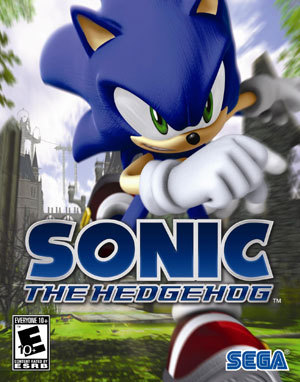
^(Ugh)^
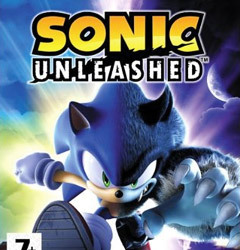
^(Uuulgh)^

^(Bluuurgh, no.)^
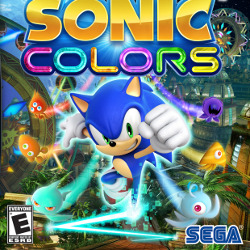
^(Huh)^

^(Hey, okay.)^

^(Aaaargh! Ah Gottirn, nein!)^
While Sonic Colors and Generations provided brief, dim lights in the darkness that followed Adventure 2, they were not enough to save Sonic’s critically damaged reputation. Many people, players and critics alike, have gone on record as saying that Sonic should be put down for good, each individual having their own opinion as to when he should have been dropped.
So, we have a character who is consistently likable and eminently marketable, but who is the subject of a swath of poor video games. And yet, despite the utter abhorrence many Sonic titles languish in, he still has plenty of fans. Why is this?
Perhaps the answer lies in other media that Sonic has been in. For example, the Sonic the Hedgehog comic series has generally been received positively. One might very easily argue that this is because the comic series lacks the various elements that made the games really bad. After all, you don’t have to rely on shitty controls to make Sonic do his thing in a comic series, and the character’s voices can be as cool or as terrible as you imagine them to be. Also, the plots are written by people who’s job it is to write plots! Amazing! And the graphics are drawn by people who are trained to draw comic book art. Also amazing!
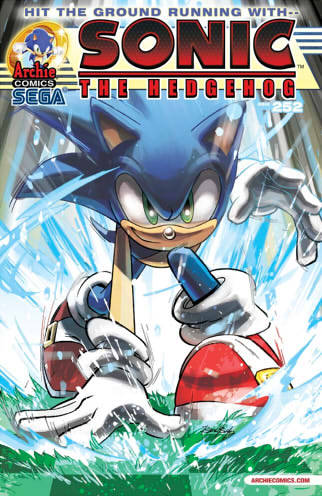
^(Pictured: Something I’d totally read)^
In this way, the comics make use of Sonic’s personality and abilities, without forcing you to wrestle with poorly implemented controls or terrible glitches. We get his character, without his game. The same goes for the television series; although, none of the television adaptations seem to sell quite as well as the comic. Possibly because of the voices of... certain characters.
So how can Sonic Team and SEGA make Sonic games better while preserving Sonic’s character? What really is the deal with Sonic games? Well, game journalist and professional... Boglinwatcher, I guess... Jim Sterling, has actually made the point that after the relative failure of Sonic ‘06, SEGA kept trying different things to make the games good, many of which failed. He went on to say that each of the games presented an interesting concept, and that each could have been a great game, if it were refined. His argument was if SEGA had stuck to a single concept or idea long enough to make it good, then Sonic games could be good, Q.E.D.
To see that idea in action, we can take a look at SEGA’s direct competitor, Nintendo. In many ways, Nintendo’s flagship characters are much like Sonic the Hedgehog. Por exemple, Mario has a very basic set of abilities, an easily-recognizable silhouette, and his bright colors and blank-slate personality make it easy for us to project ourselves onto him as we play. Link from the Legend of Zelda games, is very similar, with a simple-ish design, a monotone color scheme, and a classic story arc.
Consider now, that Nintendo has, with few exceptions, been pumping out the same Mario and Zelda games for years. Mario has had plenty o’ platformers, and Link has a lot of adventure games. One does not create using the same formula over and over without becoming very good at it, and refining it to a razor polish. Mildly mixed metaphors aside, this is, essentially the main difference between Nintendo’s properties and Sonic the Hedgehog; Sonic games can have all the interesting ideas in the world, but if they’re not refined, they just won’t be very good as compared to a more polished experience.
Now, we’ve all heard the flagship complaints carried by Sonic’s detractors. The first is that because he’s too fast, and because depth perception in a 3d environment is difficult, Sonic simply cannot exist competently in a 3d space. Q.E.D. any 3d Sonic game will be bad. I disagree; I believe that 3d Sonic’s relative atrociousness isn’t an intrinsic property of 3d physics’ interaction with Sonic’s speed, but that Sonic Team simply don’t often design environments wherein the two elements play well. When stages are constructed to take advantage of Sonic’s characteristic speed, such as the first level in Sonic Adventure and some of the “Regular Sonic” stages in Unleashed, they’ve often been described as good, or even the best parts of those games. Really, the problem isn’t Sonic, it’s Sonic’s developers, who don’t seem to know how to handle him.
Another common complaint is that Sonic’s ever-expanding team of sapient animal friends is drawing the games away from their core focus. Such detractors will say that any stage in which you are you are, say, being Tails in a mech, instead of being Sonic and going fast, is somehow a detriment to the game’s quality. Again, I have to disagree; plenty of games have many different core mechanics that form the whole game, and I think maybe instead of insisting that every Sonic game be about going fast exclusively, we should look at any stage in which we get to play as a new character as an interesting new experience; even if we don’t personally like it; we can at least appreciate that the particular game in question isn’t monotone. That said, those critics who claim that the other character’s personalities and voices are irritating may have a point, at least in the grand generality of Sonic games.
Finally, I want to talk for a moment about the relative success of Sonic Mania, and the stigma that 3d Sonics have acquired. See, Mania has been hailed as this return to form for Sonic the Hedgehog, and that’s not without merit. The game essentially has classic Sonic’s turgid wang firmly in it’s mouth, and while that isn’t necessarily a bad thing, I feel like it could lead to a bad thing. A lot of the complaints about modern Sonics has been about the 3d aspects, and Mania is 2d, you see. What I’m worried about it that Sonic Team might see the success and praise for Mania and think that the number of dimensions is the problem, instead of the lack of polish, the glitches, the unlikable sidekicks, etc. And therein lies a risk of a return to the problem Jim Sterling mentioned, wherein Sonic Team simply abandons an aspect of Sonic games because they think that it specifically is the reason it didn’t do well, and thus, it may lead to merely another unpolished Sonic game, except in 2d.
فى الختام،, Sonic games suffer primarily from a severe lack of polish, overall glitchiness, and a menagerie of annoying ancillary characters, truly. But they have not suffered from 3d, or from Sonic’s own character. To fix this, Sonic Team should stick to one or a few core elements for the games, at least for a while, until they get good at it, before trying to get fancy.
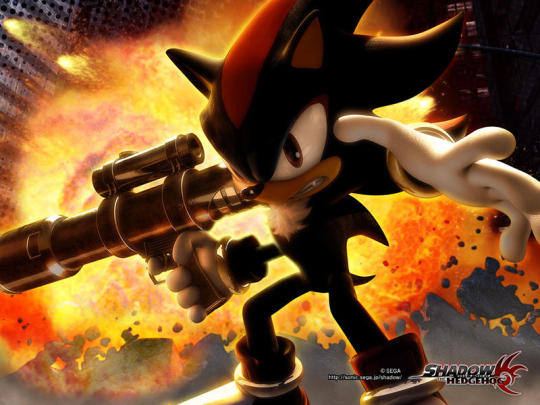
^(Or they could just release Shadow the Hedgehog 2 already. Whatever works for them.)^
1 note
·
View note